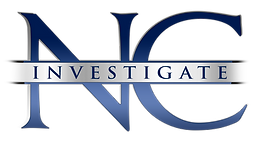Benefits of working with

-
A confidential and professional review of your case
-
Professional investigative team with your best interest in mind
-
Frequent updates on the status of your case
-
Complete privacy and confidentiality guaranteed
-
A professional team who will do the job right
-
A final court-ready report detailing the results of your case
10 Things A Private Investigator Can Do
That Most People Can't!
To PI or to not PI, that is the questions? Hiring a Private Investigator gives clients many advantages over going it alone. One of the major reasons that makes this true are things Private Investigators can do that most people cannot. The below is an exhaustive list of some of the things that state licensing can afford you as a PI.
So if your deciding whether to hire a Private Investigator or not, the below items should help you iron out your decision.

1) Surveillance
Surveillance is the act of closely observing a person, place or thing with the intent of gathering information, delivering proof, evidence, or document an act without being detected. PI’s are not only trained in this area but are authorized by law to perform this act. It is against the law for a private citizen who is not a licensed PI to conduct surveillance. Quite the opposite, that citizen is guilty of violating privacy laws and may be charged with stalking or harassment.
2) Skip Tracing
This service can go my many names; skip tracing, a skip trace, locate a person investigation, people locate investigations or location investigations. No matter the name distinction, this is an investigative technique that finds a person who has skipped out or relocated to avoid a legal or financial obligation. These techniques are also utilized during domestic searches for loved ones and friends who want to avoid being found for various reasons. PI’s have the training, experience, skill and authority by law to dig deep into restricted databases to find clues that the average laymen would overlook.
3) Background Checks
Private Investigators are authorized by state law to perform background checks on individuals. These background checks are usually performed for employment purposes or as a step in working on an assigned case. PI’s can perform these background checks because their state licensure grants them access to protected databases not available to the general public. These background checks can look into a person’s criminal record, employment history, financial records and education to name a few. Background checks are so important because they are used by clients to make informed decisions.
4) Protected Database Access
As mentioned above, licensed Private Investigators are allowed access to protected informational databases not available to the general public. These databases provide information to PI’s which help them locate missing persons, perform background checks, perform asset searches, surveil cheating spouses and provide information to clients in insurance fraud cases.
5) GPS Vehicle Trackers
The legal use of GPS trackers on vehicles vary state by state. In North Carolina, this investigative technique is allowed to be used by licensed Private Investigators under certain conditions when working on a case. The GPS tracking of a subject’s vehicle can be a valuable tool when working infidelity cases, divorce, child custody and when performing surveillance.
6) Advanced Certifications
Once licensed as a Private Investigator, individuals may elect to pursue advanced certifications in specialized fields. One example of this is Professional Certified Investigator (PCI) which is offered by ASIS International. This specialized designation is awarded to those who specialize in corporate security investigations. Certified Fraud Examiners (CFE) offered by the Association of Certified Fraud Examiners is another example and awarded to this who have met the requirements and specialize in fraud investigations.
7) Carry A Badge
It is illegal for anyone other than a law enforcement official to carry a badge with the exception of a Private Investigator. PI’s are granted this privilege through the state in which they are licensed as a means to assist them in conducting the work they are charged to perform. The badge is normally accompanied by a state issued identification card. Great care must be taken on behalf of the PI to ensure he is not impersonating a law enforcement officer whether intentionally or unintentionally.
8) Obtain Protected Information
Private Investigators can gain access to protected information not available to the average citizen. Despite needed a subpoena or court order, nevertheless, the Private Investigator has the tools necessary to acquire this information based on the circumstantial need of the case. The records which are accessed may be phone records, financial records, and bank account information. It must be stressed that PI’s have access to this information only with the help of the court and cannot obtain this information alone.
9) Run License Plates
Private Investigators have licensing by their particular state which grants them access to Department of Motor Vehicle database records. This access allows the PI to access information needed to work on a variety of cases such as missing persons, asset searches and surveillance cases. The PI must have a valid reason to access such information and may be audited by the state at any time to ensure abuses are not being made.
10) Conduct Bug Sweeps
Bug Sweeping is conducted by highly trained individuals which use specialized equipment to detect any video or audio recording devices in a given location such as a home, hotel room or vehicle. The official name for this service is Technical Surveillance Counter Measures or TSCM. As technology evolves and recording devices get smaller and smaller and the electronics gets more advanced, it’s becoming more difficult than ever to detect such hidden devices. Private Investigators utilize all their training, experience, and skill to this very difficult field in order to provide the best services to their clients.



